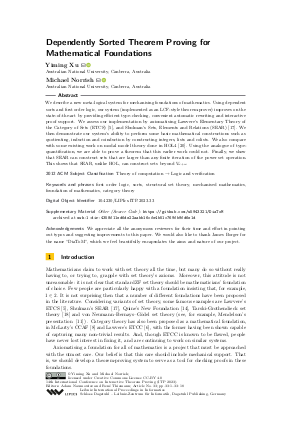LIPIcs.ITP.2023.33.pdf
- Filesize: 0.77 MB
- 18 pages

 Creative Commons Attribution 4.0 International license
Creative Commons Attribution 4.0 International license








Feedback for Dagstuhl Publishing